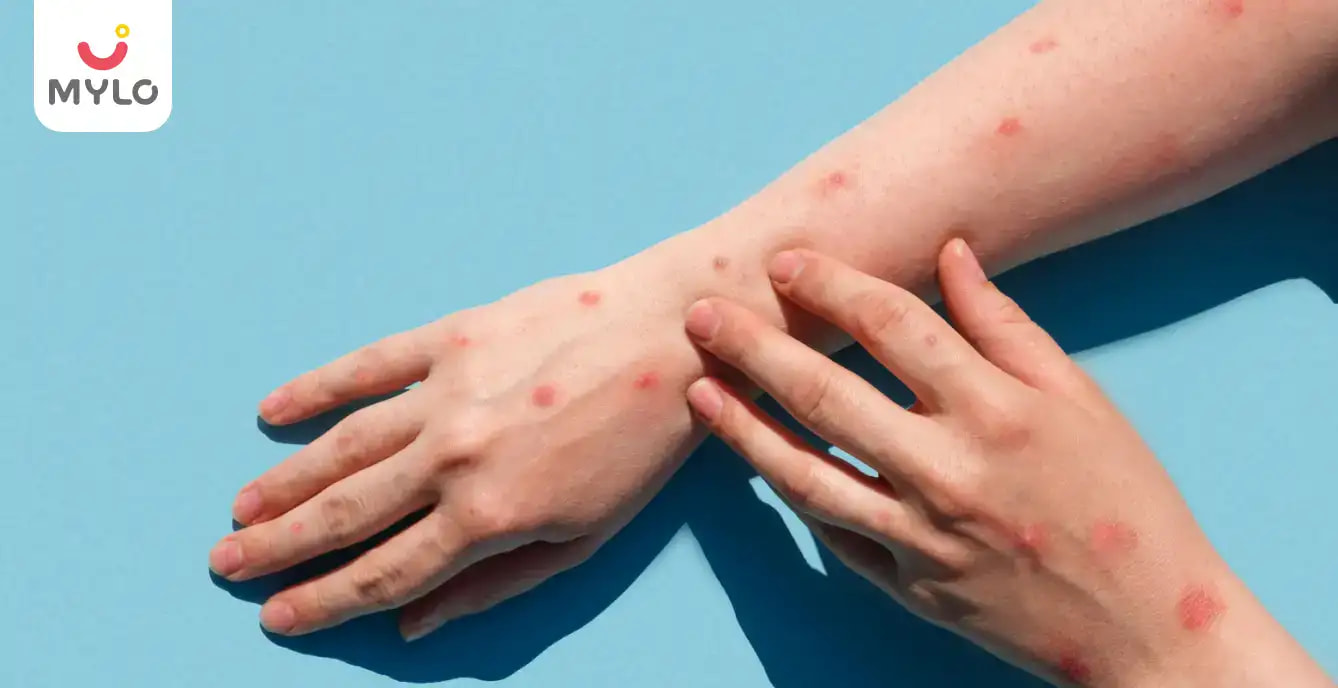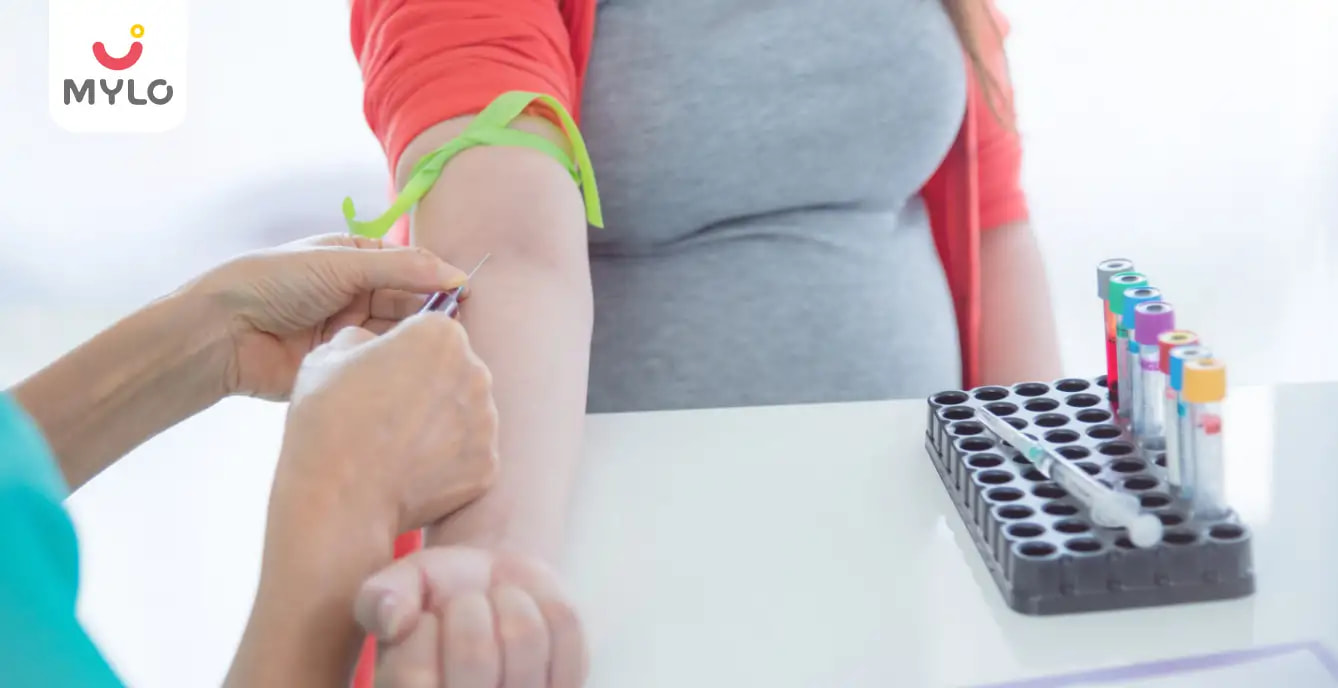Home

Illnesses & Infections

Dengue During Pregnancy: Causes, Symptoms, Risks & Treatment
In this Article
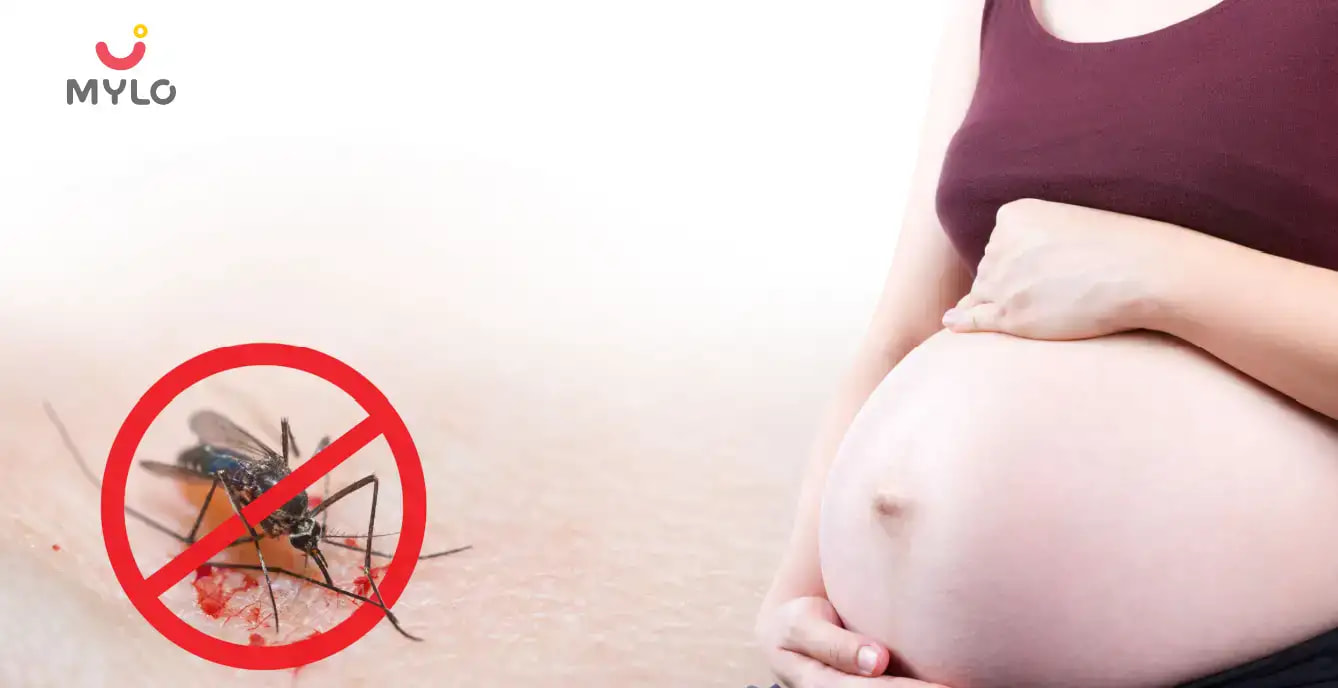
Illnesses & Infections
Dengue During Pregnancy: Causes, Symptoms, Risks & Treatment
Updated on 28 March 2023
The increased activity of mosquitoes during the rainy season and in humid climates is a significant factor in spreading many mosquito-borne illnesses. As a well-known disease with multiple possible side effects, dengue is especially dangerous during pregnancy. This article will talk about everything that is dengue-related right, from its causes, its symptoms to its treatment.
What Is Dengue During Pregnancy?
Mosquitoes are responsible for spreading dengue fever. Dengue fever can develop into dengue hemorrhagic fever if left untreated. The urban centres of the world's tropical and subtropical regions are typical habitats for dengue. Carriers of the dengue virus, the Aedes aegypti mosquitoes often breed in stagnant water and transfer it through their bites. They can remain infectious for up to 40 days, the length of time these mosquitoes live. You should take extra precautions during the months following the monsoon, as this is their preferred breeding season (the rainy season). Mornings and evenings saw the most activity from these dengue-carrying insects.
How To Protect Yourself From Mosquito Bites?
It is crucial that you take precautions to avoid getting dengue while you are pregnant. You, as the mother, are accountable for your child's well-being and must protect them against the dengue virus. Take care to avoid potential dangers as listed below.
-
Since mosquitoes prefer warm environments, sleeping in a cold room during the day is best.
-
In areas where it's not practical to employ mosquito netting, spray the area with an effective mosquito repellent.
-
Eliminate breeding grounds by emptying water from flower vases or air conditioning vents.
-
Protection against mosquito bites can be enhanced by donning long-sleeved, light-coloured clothing.
-
Check your blood pressure frequently and visit a doctor if you have any concerns.
-
Placing fine mesh over your doors and windows will keep the mosquitoes outside where they belong.
-
If you want to keep mosquitoes away, use the repellent more often and in smaller amounts rather than all at once.
Insect repellents containing one of the chemicals listed below should be used. For the protective effects of the active ingredient to last longer, more of it is needed. When used the way the Environmental Protection Agency (EPA) says to, insect repellents are safe and effective, even for pregnant women and nursing mothers. Here is a list of the active ingredients to look out for:
-
DEET
-
Picaridin (known as KBR 3023 and icaridin outside the US)
-
IR3535
-
Oil of lemon eucalyptus (OLE)
-
Para-menthane-diol (PMD)
-
2-undecanone
Causes Of Dengue During Pregnancy
Here are the most common causes of dengue fever in pregnancy:
-
Almost all cases of dengue are brought on by the Aedes aegypti mosquito, which thrives in hot, humid temperatures and is, therefore, most common in tropical areas.
-
Mosquitoes that carry the disease spread in and around stagnant water, which can be found in places like open drains, pots, flower vases, and stored water.
-
Because there are four different types of dengue virus, you can still be at risk for contracting one of the other three, even if you've had it once.
-
The peak biting times for the dengue mosquito are early in the morning and late in the afternoon.
Symptoms Of Dengue During Pregnancy
People usually get dengue fever and its symptoms four to seven days after being bitten by a mosquito carrying the dengue virus.
Dengue is recognised by a high fever accompanied by a few symptoms, including headache, joint or muscle discomfort, vomiting, nausea, a rash all over the body, enlargement of the glands, or pain behind the eyes.
In severe cases of dengue, these symptoms may present themselves:
-
Fast breaths
-
Vomiting continuously
-
Nasal bleeding or bleeding gums.
-
Extreme pain in the abdomen.
-
Bruised skin.
-
Difficulty in breathing
Treatment Of Dengue During Pregnancy
The treatment of dengue during pregnancy is just as important as in other dengue cases. A blood test will be performed to determine whether or not you have the dengue virus and to what extent it has affected your body. Here are some guidelines for managing it while pregnant:
-
It's crucial to keep the embryonic fluid level stable, and being hydrated is the key to doing so, so drink plenty of fluids like water and fresh juices.
-
You'll be given medication to ease discomfort and antibiotics to prevent infection.
-
Pregnancy is not a time to take any chances, so you should never take an OTC medication.
-
Regular monitoring of your blood pressure and platelet count will be performed.
-
Platelet infusion may be recommended for patients with severe dengue fever.
-
In addition to the oxygen and fluids that will be pumped into your veins, you will also be given injections.
-
If there is significant bleeding, a transfusion may be necessary.
Risks Of Dengue During Pregnancy
When dengue and pregnancy occur at the same time, several risk factors could impact your developing baby in the following ways:
-
Low birth weight
-
Pregnancy loss if dengue occurs in the first trimester
-
Preterm birth, which prevents your baby from growing fully, is one of the main effects of dengue during pregnancy.
-
Dengue haemorrhagic fever, a severe side effect of dengue, can be lethal to the fetus.
Prevention of dengue during pregnancy
To prevent any issues later on, you must take precautions to avoid getting dengue in pregnancy. You must protect your infant from the dengue virus as part of your responsibility to look after their health. You can do this with the assistance of the following precautions:
-
If you want to rest during the day, pick a cold room because mosquitoes love warm environments.
-
You can use mosquito nets everywhere, and to keep them away, apply safe repellents or sprays.
-
To stop breeding, empty any standing water in vases or air conditioner outlets throughout the house.
-
An excellent way to avoid mosquito bites is to dress in light-coloured, full-sleeved clothing.
-
Regularly check your blood, and when in doubt, consult a physician.
-
Cover the doors and windows with a fine mesh to keep mosquitoes out of your home.
-
In order to achieve the most protection from mosquitoes, it is preferable to apply repellents regularly and repeatedly instead of using more repellents all at once.
Transmission Of Dengue During Pregnancy
Aedes mosquitos, which also spread the viruses Zika and chikungunya, are the main vectors of dengue. An infected person is bitten by a mosquito, which then bites another person, infecting them with dengue fever.
Unlike the flu, which may be transmitted from one person to another, dengue fever cannot. Only a pregnant woman who contracts the disease can transmit dengue to another person. You can infect your unborn child with dengue fever in pregnancy or while giving birth.
Conclusion
You must take extra precautions to protect yourself from diseases like dengue during pregnancy. The best way to protect yourself and your unborn child from contracting dengue are to prevent it from happening in the first place.



Written by
Ishmeet Kaur
Ishmeet is an experienced content writer with a demonstrated history of working in the internet industry. She is skilled in Editing, Public Speaking, Blogging, Creative Writing, and Social Media.
Read MoreGet baby's diet chart, and growth tips

Related Articles
Related Questions
Hello frnds..still no pain...doctor said head fix nhi hua hai..bt vagina me pain hai aur back pain bhi... anyone having same issues??

Kon kon c chije aisi hai jo pregnancy mei gas acidity jalan karti hain... Koi btayega plz bcz mujhe aksar khane ke baad hi samagh aata hai ki is chij se gas acidity jalan ho gyi hai. Please share your knowledge

I am 13 week pregnancy. Anyone having Storione-xt tablet. It better to have morning or night ???

Hlo to be moms....i hv a query...in my 9.5 wk i feel body joint pain like in ankle, knee, wrist, shoulder, toes....pain intensity is high...i cnt sleep....what should i do pls help....cn i cosult my doc.

Influenza and boostrix injection kisiko laga hai kya 8 month pregnancy me and q lagta hai ye plz reply me

Related Topics
RECENTLY PUBLISHED ARTICLES
our most recent articles
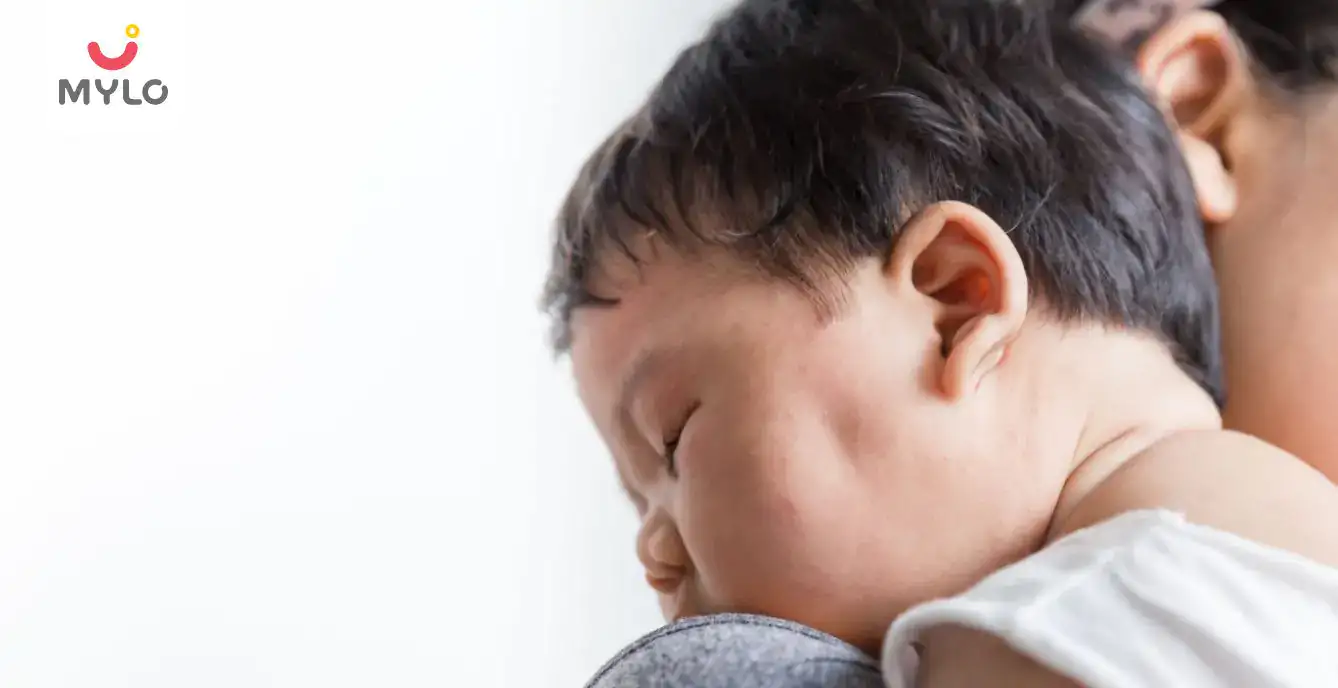
Illnesses & Infections
Heat Rash in Babies: Symptoms, Risks & Treatments

Scans & Tests
Amniocentesis: Meaning, Risks & Results
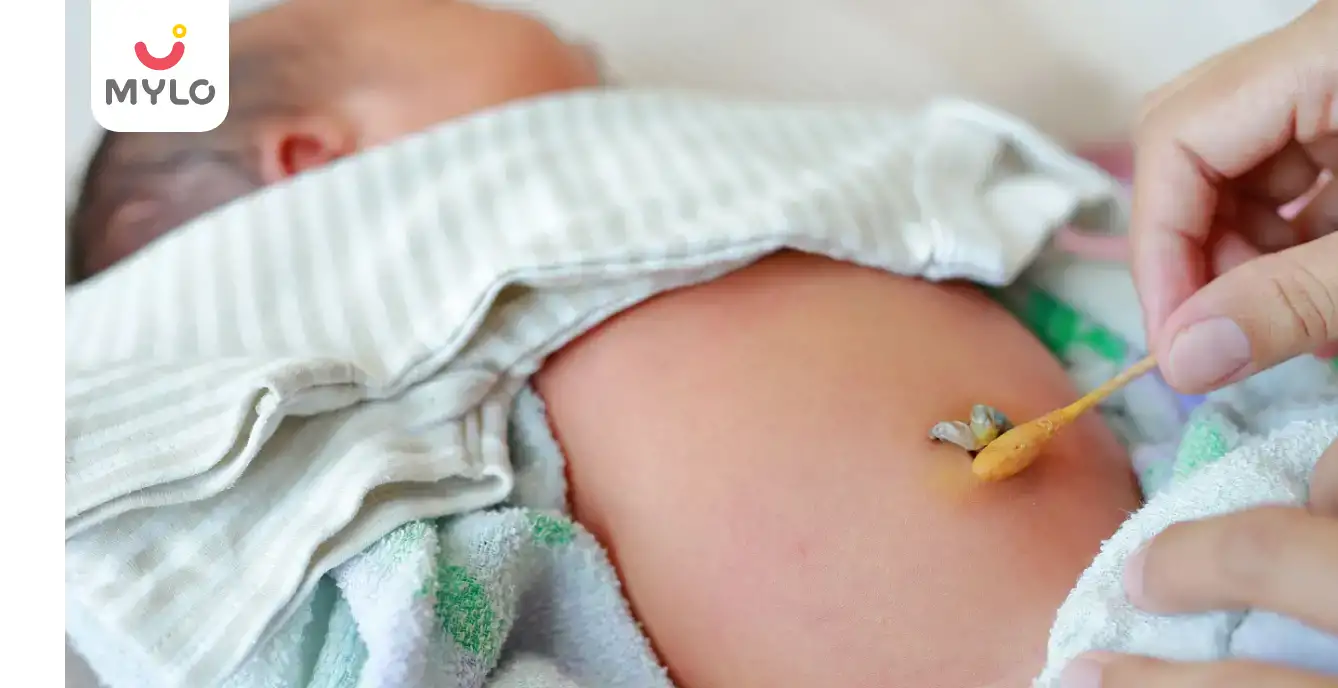
Umbilical Cord
Umbilical Cord: Risks, Benefits & Recovery

Stretch Marks
Stretch Marks Removal: Tips & Remedies

Fussy Baby
How Can Dads Calm A Fussy Toddler

General Father
How to prepare your older child for a new baby
- 5 Financial Moves You Must Make Before Your Baby Arrives
- Daddy-Baby bonding from Pregnancy to Childbirth: Top 7 tips for you
- How to prepare your child for pre-school
- I am pregnant, can I still breastfeed my toddler?
- My toddler has bad breath. what should I do?
- When will my toddler learn how to scribble or draw?
- Can loud volume affect my toddler's ears?
- Running & Jumping Milestones for your toddler
- Activities to keep an active toddler occupied at home
- Girls' growth chart: 24 to 36 months
- What to do if your toddler is overweight?
- Electric toothbrush for Toddlers: Is it safe?
- Teaching good eating habits to your kids
- How to Introduce Books to Your Child?


AWARDS AND RECOGNITION

Mylo wins Forbes D2C Disruptor award

Mylo wins The Economic Times Promising Brands 2022
AS SEEN IN

- Mylo Care: Effective and science-backed personal care and wellness solutions for a joyful you.
- Mylo Baby: Science-backed, gentle and effective personal care & hygiene range for your little one.
- Mylo Community: Trusted and empathetic community of 10mn+ parents and experts.
Product Categories
baby carrier | baby soap | baby wipes | stretch marks cream | baby cream | baby shampoo | baby massage oil | baby hair oil | stretch marks oil | baby body wash | baby powder | baby lotion | diaper rash cream | newborn diapers | teether | baby kajal | baby diapers | cloth diapers |




